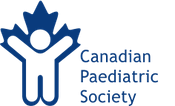New data from the Canadian Paediatric Surveillance Program highlight risks of cannabis, vaping, and provide 10-year trends on childhood onset diabetes
OTTAWA -- With a full year of data collected, interim results from a Canadian Paediatric Surveillance Program study on serious adverse events involving non-medical cannabis on children and youth show a concerning trend: The accidental ingestion of edible cannabis products remains the most frequently reported event in the study.
Almost all of the 36 cases included in the 2019 results required hospitalization, with an average patient-age of 9-10 years. A third of the patients were under 12 years old and had accidentally ingested cannabis edibles. 8 cases were teenagers who experienced hyperemesis syndrome - a condition that causes repeated and severe bouts of vomiting.
"These results highlight the need for accessible, compassionate education around cannabis - both for parents and for adolescents," said Dr. Christina Grant, co-Principal Investigator and an adolescent medicine specialist at McMaster Children's Hospital in Hamilton, Ontario. "These findings provide Canadian-specific data to support guidance on the potential harms of cannabis use by adolescents and on the importance of appropriate storage of edibles, especially around young children."
With the recent legalization of cannabis, families are increasingly looking to their primary care providers for reliable, honest guidance on the subject. To that end, Canadian Paediatric Society released clinical resources for counseling adolescents and their families about cannabis use earlier this year.
This two-year study will continue until October 2020. Since edible cannabis products did not become available for purchase through the legal market until late December 2019 at the earliest, more time is needed to evaluate the impact of that legislation on the health of Canadian children and youth.
The interim cannabis data were among a number of study results released this week by the Canadian Paediatric Surveillance Program. Among the findings:
- A survey of Canadian paediatricians captured 88 cases of illness or injury related to vaping over a 12-month period, with a quarter requiring hospitalization. Children and youth presented most often with respiratory distress or nicotine toxicity, and the survey also captured cases of accidental ingestion of e-liquids by young children. Almost a third of responding paediatricians indicated that they felt uncomfortable discussing vaping-related health risks with patients, demonstrating a need for clinical guidance in this area. A longer-term study, to obtain more detailed data on this issue, is being planned
- Final results of a study looking at the incidence rate of non-type 1 diabetes in children and youth provide insight into trends over a 10-year period. The study found that some groups of children are more likely to develop child-onset type 2 diabetes than others, which is an area that this study's investigators continue to explore.
– 30 –
The full study results can be accessed at this link.
The Canadian Paediatric Surveillance Program (www.cpsp.cps.ca), a joint initiative of the Public Health Agency of Canada and the Canadian Paediatric Society, contributes to the improvement of the health of children and youth in Canada by national surveillance and research into childhood disorders that are high in disability, morbidity and economic costs to society, despite their low frequency.
About the Canadian Paediatric Society
The Canadian Paediatric Society is a national advocacy association that promotes the health needs of children and youth. Founded in 1922, the CPS represents more than 3,300 paediatricians, paediatric subspecialists and other child health professionals across Canada.
Last updated: Aug 13, 2020
